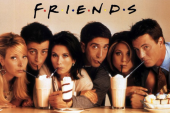
Image: Innerworlden.wordpress.com
Every time a new technological tool emerges, so do fears that this tool may be the final straw that destroys civilization. The criticisms inevitably follow the logic that one advance (say, a tweet) replaces another form of communication (say, a phone call), which in fact had supplanted another medium (say, the telegram), further and further removing us from one another until, in the end, we all find ourselves in segregated pods, to diminish and wither away.
There’s some truth to this: take clothing, for example. Decades ago, we would have had relationships with our tailors, forming a bond with someone who would know, literally, the inches of your body. Quickly, this bond broke as people turned to mass-market clothing, which was more affordable and had enough choice to approximate the bespoke feeling of a tailor–it may not have been made for us, but we felt it could have been.
The dynamic for a consumer became different: nothing was exactly made to order, but enough was made that some pieces might satisfy us; in addition, we gave up the consistent contact with a tailor for a series of conversations with interchangeable salespeople who didn’t know us at all, but could get us quickly in and out of a store.
Now, with the e-commerce, a consumer (especially one in America) can order online, have it delivered, try it, dislike it, send it back, and start all over again without ever having to interact with another person. We gain things like convenience and lower costs–efficiency in terms of productivity and pricing are often the advantages of technology–but we lose out on human interaction. Slowly, more and more people are wondering just how big a non-monetary cost is this loss.
The cover story for the May issue of the Atlantic asks, “Is Facebook Making Us Lonely?” In the piece, its author, Stephen Marche, attempts to qualify the online–in particular, social media–interactions we all do so frequently in a day in terms of their value for our sense of belonging. What effect does “liking” something actually have? Have we substituted meaningful times with our friends and family for brief tweets and wall posts, the communications equivalent of fast-fashion? It’s a necessary question to ask, because while we have gained the ability to speak to more people more often in more places, the depth of those conversations has become shallower: we’re losing the bespoke quality to our interactions.
The answer, of course, lies in how we use a tool. Marche notes in his article that a simple “like” isn’t enough to create feelings of attachment, but a comment can: this happens, ostensibly, because it denotes an actual conversation, a series of interactions to forge deeper bonds. Flipping through a friend’s online photo albums doesn’t draw us any closer to them, just as having to slog through someone’s wedding album in person won’t–in fact, often it just makes me surlier–unless there’s a dialogue going explaining the significance or stories behind each image.
Part of the problem with a lack of interaction is how alienating it can be to watch someone else’s experience on Facebook or Twitter. The acronym FOMO for “fear of missing out” was coined for this new sensation that social media can give us: it perfectly describes the queasy feeling of being on vacation and checking your social media feeds. Sure, you’re enjoying the vacation, but look at all the things happening without you, and, on the other side, your friends might feel their activities are just a bit diminished because they’re not on a gorgeous beach in Los Angeles or dining on the street in Montmartre.
Image: Anchor Social MediaI’ve had this feeling on Friday nights when all I want to do is curl up on the couch with a glass of wine and a few episodes of Cougar Town, but then see my friends out on the town. It’s a bizarre feeling since I know that watching Courteney Cox and company while downing some baco noir is exactly what I want to do and yet I’m left dissatisfied with the potential of missing out on something.
I suspect that we’ve all jumped into social media so quickly, many of us haven’t thought through why we use it. To show what I mean, let’s take pictures of food that pop up on Twitter and Facebook. When critics want to denigrate social media, they often joke about the frivolity of sharing what one had for lunch. For me, an avid exhibitionist of what I eat and make, it’s about inspiring people to try something different, to push themselves out of their comfort zones for what they’ll consume and cook. With a solid purpose, I feel more confident there’s space for conversation and a chance to connect over a shared love of food.
Marche talks about the fears of always being “on,” perpetually ready to report to the unseen masses, and how that atrophies our ability to internalize, reflect, and be still with ourselves. In a way, that is the flip-side of FOMO, a fear of missing out not of other’s activities, but of the chance to be visible. This pressure to constantly live the most interesting, most happy, most frenetic life seems like some Oprah-esque hex. When you think about it, this isn’t much different from how many people are while at work, firmly armoured with public faces–but, at least then, there is a separation once a worker goes home, with the comfort of a private face.
There are so many questions surrounding the social impact of new technology and it is fair that we teeter between an optimism for what can be achieved and a pessimism for what it will take away. For now, the biggest question for most people will be: do we use social media to get closer with other people or do we use it to distance ourselves?
If we go back to our discussion on clothing, the question becomes: do you take the time saved from shopping at a store and spend it on other activities that build relationships? (Maybe, say, going online to tweet a local designer you admire or using the outfit as an excuse to go out with friends.) You may have lost out on the contact with a tailor, but what has sprung to replace it?
My hope is that we share parts of our lives so that we can find unexpected commonalities between one another, but sharing is not enough. If we don’t do the work–the hard, messy work–of building connections, we really may all end up further behind than if we didn’t use social media at all.
________
Jaime Woo is a Toronto writer, storyteller, and Gamercamp co-creator. Follow him on Twitter at @jaimewoo.
For more, follow us on Twitter: @torontostandard, and subscribe to our Newsletter.














